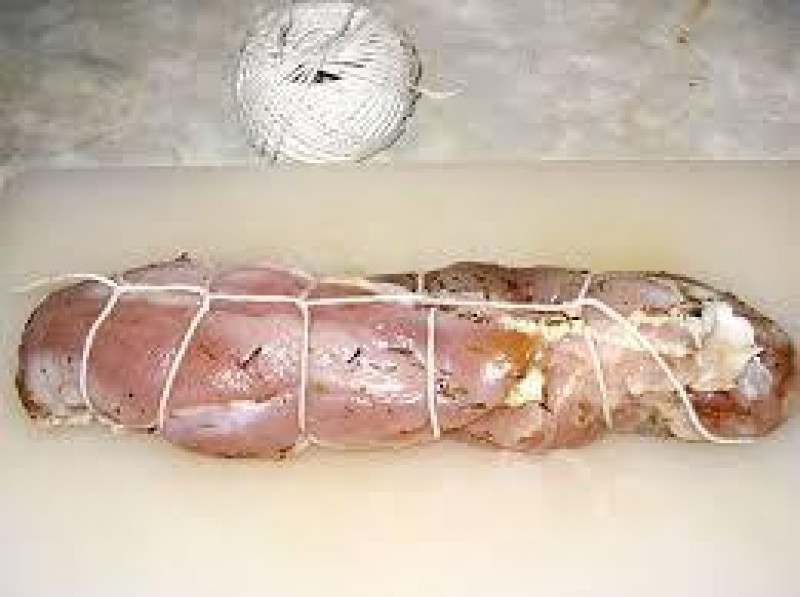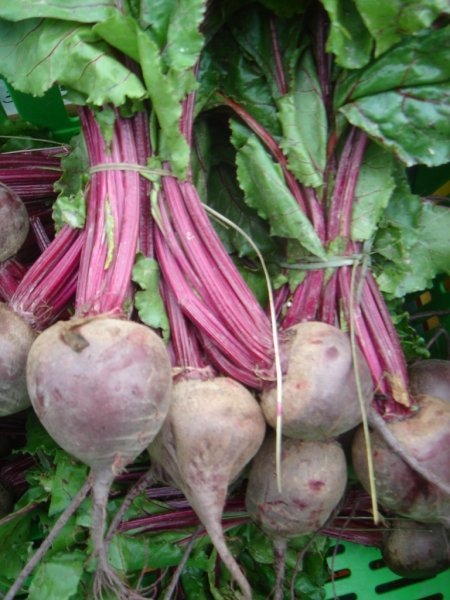Ingredients
- 250g boneless, skinless chicken breast
- 1 tablespoon honey, runny or non-runny - or use sugar instead
- 1 1/2 teaspoons Bracken Mediterranean salt
- 1/2 teaspoon or taste coarsely ground black pepper
Salt cured chicken

Method
- Step 1: Prepping and marinating the chicken Trim off any fat or sinews on the chicken breasts
- You may want to cut them in half if they are much bigger than half a pound each
- In a sturdy zip lock bag or vacuum sealing bag, put in the amount of honey and salt that you need for the amount of chicken breast you'll be processing
- For instance if you have 4 breasts use 4 tablespoons of honey and 6 teaspoons of salt
- Squish the bag around a bit to mix the honey and salt
- Alternatively, you can assign one chicken breast per bag (do this if you want to experiment with different herb/spice flavours), in which case each bag should have 1 tbs
- of honey and 1 1/2 tsp
- of salt
- Put the chicken breasts in, one by one, and squish them around in the bag to coat them completely with the honey-salt mixture
- At this point you can add the black pepper and/or any herbs or spices that you like to the bag with the chicken
- I like dried thyme the best
- You can try tarragon, crushed red chili peppers, "steak mix" spices, any of Emeril's best, and so on
- For the most versatile and neutral flavour though, stick to just black pepper
- Once the herbs and spices are added, squish the chicken in the bag around again to coat
- Squeeze out as much air as you can, or suck the air out with your vacuum packing appliance
- Seal the bags, and leave the chicken to marinate in the refrigerator for 48 hours - 2 full days
- Step 2: De-salinating the chicken Once they are done marinating, take the chicken breasts out of the zip lock bag or bags, and rinse the chicken well under cold running water
- Then, leave the breasts to soak in plenty of cold water, for 1 hour
- This soaking process gets rid of excess salt, or de-salinates them, while still leaving enough salt in them so that they are nicely flavoured
- Cooking methods For poaching Bring a pot of water to a boil
- Once it's come to a boil, reduce the heat to the lowest setting possible
- In the meantime, wipe the excess moisture off each chicken breast thoroughly with kitchen or paper towels
- Lay each breast flat on a piece of microwave-safe plastic wrap/cling film
- At this point, you can add some herbs or seasonings if you like
- You may want to tie something around the twisted ends for extra security, but this is not totally necessary
- To make the chicken really keep a nice round shape, wrap some kitchen twine or string around it
- Put the wrapped and tied up chicken into the hot and barely simmering water
- Cook for 5 minutes, then put a tight fitting lid on the pot and turn the heat off
- Leave the chicken to poach for at least an hour
- For baking
- Preheat the oven to 120 °C / 250 °F
- Yes, it's quite a low temperature - you'll be cooking the chicken slowly, so that it doesn't get dried out
- Line a baking sheet with kitchen cooking parchment or a non-stick baking liner, or lightly oil the sheet
- After washing and soaking the chicken breasts, wipe off any excess moisture with paper towels
- You can roll up the chicken breasts and tie them up with kitchen twine to get a nice round shape, or just leave the breasts as-is
- Put the breasts on the lined baking sheet
- Bake the chicken breasts for 35 to 40 minutes, until the surface is a very light brown
- (The exact and squeamish amongst you may want to check the internal temperature with a meat thermometer; it should have reached 73 °C or 165 °F
- ) Take the chicken out and leave to cool on a plate
Comments
Thanks to Dunedin Poultry - chicken breasts, and to Bracken Larder - Mediterranean Sea Salt, for providing the ingredients used in the demonstration at the market
Please click here if you would like to download a printable copy (Seasoned marinated chicken is the name of the recipe in printable copy)



